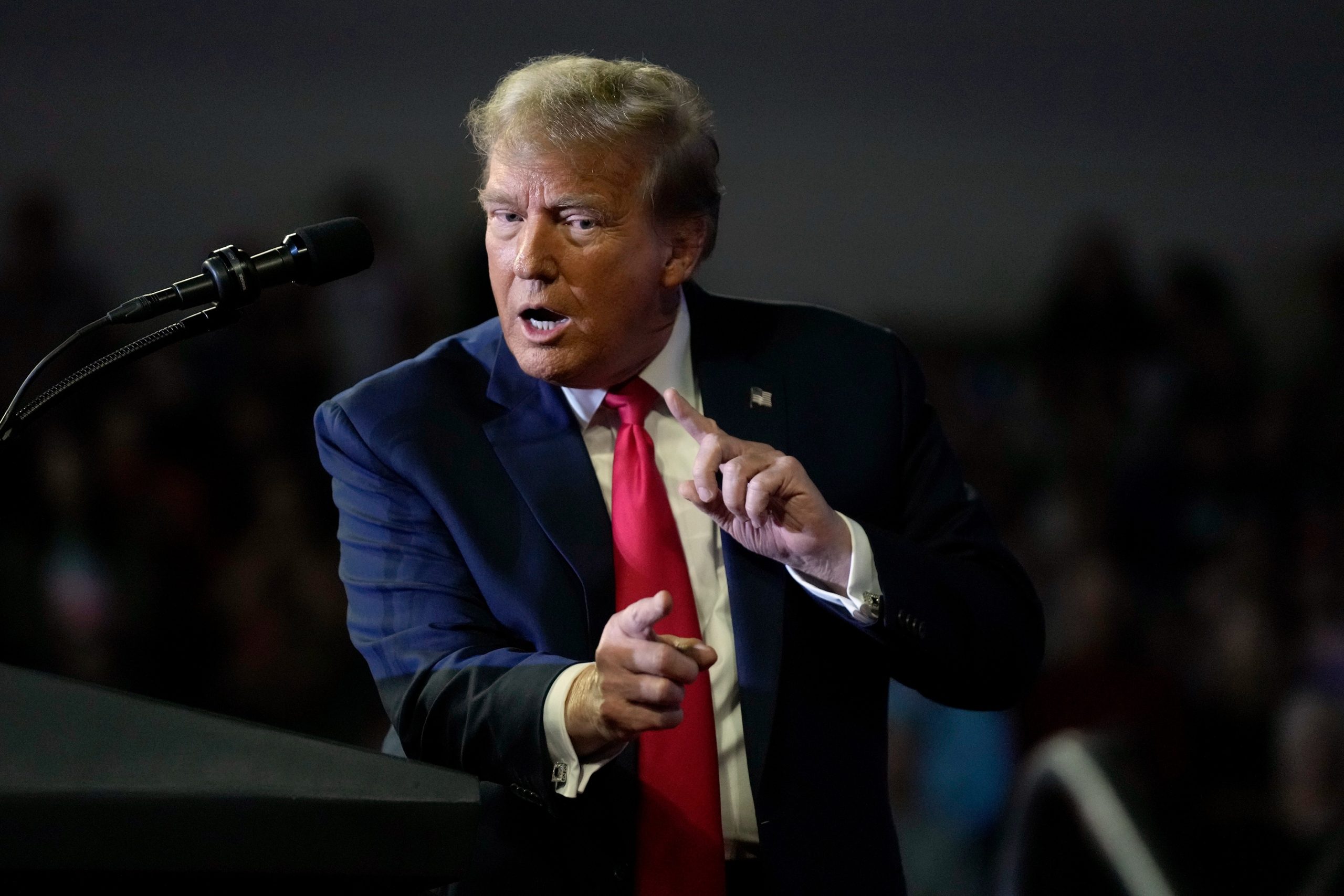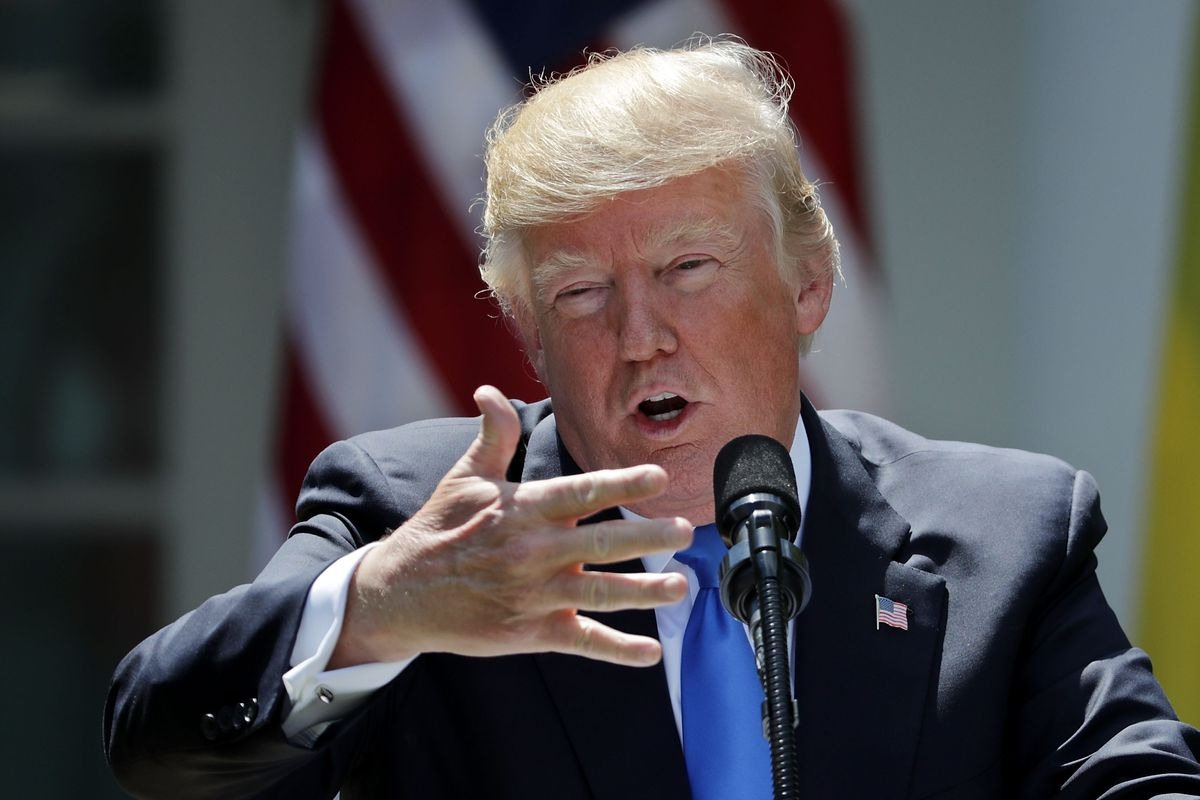Donald Trump’s pronouncements typically resonate within his own echo chamber, often dismissed as white noise—a projection of strength rather than a reflection of actual policy.
However, when he suggested on Saturday that he would permit Russia to act without restraint against NATO members failing to meet spending guidelines, the impact reverberated globally.
Trump recounted a conversation with an unnamed “large” NATO ally who refused to spend the recommended 2% of their GDP on defense but sought assurances of protection from the U.S. if Russia attacked.
In response, Trump, deeming the ally “delinquent,” stated he wouldn’t provide such assurances, effectively allowing Russia a free hand.

Donald Trump (Credits: AP News)
While Trump’s disdain for NATO is well-known, his recent comments strike at the heart of the alliance’s fundamental principle of collective defense—an attack on one is an attack on all, enshrined in Article 5 of NATO’s treaty.
Trump’s transactional view sees NATO as a dues-based loyalty club, a perspective fundamentally at odds with the alliance’s purpose and history.
NATO, formed to counter the Soviet threat, offers the U.S. global legitimacy, support for the dollar, and reinforces its position as the predominant power. Trump’s misunderstanding of this dynamic undermines the alliance’s core strength, portraying it as a burden rather than an asset.
Amid Trump’s comments, Europe faces challenges, particularly regarding aid to Ukraine. The GOP’s faction supporting Trump seeks to derail crucial aid, potentially impacting Ukraine’s defenses, political cohesion, and morale. The narrative of the U.S. being exploited and in decline gains traction, benefiting Putin.
Trump’s inexplicable affinity for Putin and dismissal of NATO as a powerful alliance contribute to projecting weakness. His comments coincide with a critical time for Europe, as Ukraine faces Russian aggression. The potential delay or absence of $60 billion in aid could severely impact Ukraine’s defense capabilities.
Trump’s softer approach to Putin, exemplified in a recent interview by Tucker Carlson, reinforces perceptions of weakness. This narrative aligns with Trump’s GOP, fostering a loop of grievance that undermines U.S. power and influence on the global stage.
The real-world consequences of Trump’s comments remain unclear, but they could be disastrous. European security hinges on Ukraine’s success against Russian aggression. Trump’s words could embolden Moscow, leading to potential geopolitical shifts and a weakened NATO.
Europe, facing the Russian threat, may feel increasingly isolated. Trump’s potential second term could bring substantial changes in U.S.-Russia relations, further impacting global dynamics.
The urgency of aid to Ukraine and the broader implications of Trump’s comments highlight the critical juncture at which international affairs currently stand.
In conclusion, Donald Trump’s recent remarks on NATO and Russia have far-reaching implications. They challenge the fundamental principles of collective defense, potentially weakening NATO’s cohesion and global standing.
The impact on aid to Ukraine and the portrayal of the U.S. in global affairs underscores the significance of these comments. The geopolitical landscape faces uncertainty, with potential repercussions on European security and the future of international alliances.























